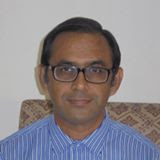Karmic conscience guided me to some interesting sessions coordinated by IFEES officials at the 38th ISTE Convention hosted by KIIT University from 19-21 December 2008. The student forum was just about to conclude and the industry forum was to begin.
With ISTE acknowledging IFEES leadership in being a “flat-world facilitator”, the convention was of enormous symbolic significance in terms of meeting India’s inclusive growth challenges in technical education.
The student forum coordinated by SPEED was eagerly committed to mixing and mashing of global ideas on a local platform made available at Kalinga (Orissa). SPEED is short for Student Platform for Engineering Education Development. These students want action more than talk. Godspeed to their action plans. Hopefully, policy makers would be able to provide them the necessary ambience to take their plans forward.
The industry forum was moderated by Mr. Xavier Fouger of Dassault Systems who emphasized the urgent need of changing the industry focus from “Growth” to “Sustainable Development”. Highlighting WEF’s focus on “the power of collaborative innovation”, his talk was governed by the ideals guiding product-lifecycle-management (PLM) issues. He set the stage for the industry panel members to articulate their views on the theme: “Industry Expectations of Institutions and Industry Obligation to Institutions”.
The panel was represented by Infosys, L&T, Tata Technologies, Autodesk, Safran Aerospace, and Robert Bosch Engineering and Business Solutions Ltd. Though the panelists articulated their expectations of Institutions, they fell short of committing their obligations to the Institutions. Notable among them were Infosys and Tata Technologies who represent companies having significant business interest in the state of Orissa. They failed to take the cue from a QFD framework presented by Mr. Fouger for deploying the voice of the industry in shaping the University curriculum. The industry reps were evasive in their response for supporting an actionable initiative to establish a “Center for Product Lifecycle Engineering and Management” in an upcoming University (such as KIIT). An idea was mooted to take the campus connect programs of Infosys to higher levels through formation of consortiums around Universities. Mr. M. P. Ravindra’s articulation, however, leaves much to be desired from a company which claims to be guided by a certain value-based doctrine.
During the policy session, Dr. Hans Hoyer rightly observed the lack of maturity in most Universities in enabling cross-functional teams for breaking disciplinary boundaries to handle multidisciplinary projects. During the IFEES Overview he highlighted the importance of “Globalish” for promoting effective global interaction. Dr. Krishna Vedula, UMASS Lowell, promoted his IUCEE initiatives. However, his presentation was not backed by adequate suggestions for meeting the challenges currently faced by India. Their Train the Trainers program was banking heavily on overseas experts with support from companies like Infosys. Prof. N.R.Shetty, the ISTE Chairman, however, drew the panel’s attention to the indigenous capabilities being currently deployed to enhance the capacity and quality of technical education providers. Mr. Ravindra from Infosys did support the idea of having cross functional student teams (including students with a liberal art background) for undertaking student projects. However, he could not place any prescriptions in this regard for overcoming the limitations imposed by regulators such as AICTE.
Hopefully, policy makers would be able to develop actionable strategies for deploying the voice of the stakeholder into the University curriculum through active industry-institute participation spread across the globe. I wish IFEES & ISTE all the best in synergizing their efforts.
After all there is indeed an Intelligent cause for academic freedom (please click)
Criticisms and comments may be directed to kaushiksahu@gmail.com
Subscribe to:
Post Comments (Atom)


No comments:
Post a Comment